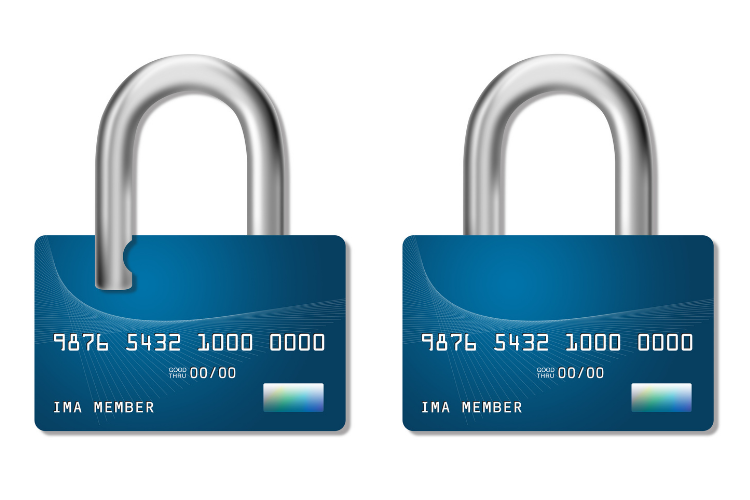Credit card fraud is a serious crime that carries harsh penalties under Texas law. Additionally, accusations of credit card fraud can affect your personal and professional reputation, even if you weren’t involved in the alleged crime or made a genuine mistake. Continue reading to learn how Texas law defines credit card fraud, what the penalties are for a credit card fraud conviction, and possible defense strategies for credit card fraud.
How Is Credit Card Fraud Defined in Texas?
Credit card fraud is a term that encompasses a variety of actions under Texas law, but at its core, the offense of credit card fraud involves any form of fraud (deceptive actions for financial gain) where a payment card or the details on a payment card is used to commit the offense.
The Texas Penal Code (Section 32.31) lays out all of the actions that are considered credit card fraud in Texas:
-
using, or attempting to use, a credit or debit card while knowing that the card has expired, been revoked, or been cancelled.
-
usings, or attempting to use, a credit or debit card while knowing that the card belongs to someone else, without the consent of the cardholder.
-
using a forged or fabricated credit or debit card, or fake credit card details, to make or attempt to make a purchase.
-
stealing a credit card, or attempting to use, sell, or give away a credit card that you know is stolen.
-
buying a credit or debit card from someone who you know is not the issuer.
-
attempting to sell a credit or debit card if you are not the issuer
-
using the cardholder’s credit or debit card, or manipulating the cardholder into using their credit card, to pay for a service for your own benefit that the cardholder cannot actually pay for.
-
possessing someone else’s credit card or debit card without their consent with the intent to use it.
-
possessing two or more incomplete credit cards without the consent of the issuer.
-
being authorized by a card issuer to provide goods or services to a cardholder, with the intent to defraud the issuer or the cardholder
-
being authorized to provide by a card issue goods or services to a cardholder, but failing to providing the goods to the cardholder even though you have told the issuer that the goods have been provided.
One of the most important things to remember about credit card fraud law in Texas is that you don’t necessarily have to have used a stolen credit card to have committed fraud. As long as the prosecution can prove that you intended to use the stolen credit card and knew that it was stolen, a crime has been committed.
What Are the Penalties for Credit Card Fraud in Texas?
Credit card fraud is generally charged as a state jail felony in Texas. Texas sentencing guidelines for state jail felonies are as follows:
-
A sentence of between 180 days and 2 years in a state jail.
-
A fine of up to $10,000.
-
Possible probation following release.
Read: Penalties for Credit Card Fraud blog by Dallas Credit Card Fraud Defense Lawyers Broden and Mickelsen
State jail felonies, unlike misdemeanors and other classifications of felonies, are not eligible for early release from jail.
In cases where the victim of the alleged offense is an elderly individual, the offense will be charged as a third degree felony. Third degree felonies potentially carry the following penalties under Texas law:
-
A sentence of between 2 years and 10 years in prison.
-
A fine of up to $10,000.
-
Possible probation following release.
Defense Strategies for Texas Credit Card Fraud Charges
Due to the nature of online commerce, which is often where credit card fraud takes place, it is unfortunately common for innocent people to be facing charges for a crime they were not involved with, or did not knowingly commit. There are four major strategies that knowledgeable criminal defense lawyers with experience defending credit card fraud cases may use as defenses in court or to get charges dropped without having to go to trial.
-
Consent. Under Texas law, you can’t have committed a crime if you performed or attempted to perform any transactions using someone’s credit or debit card and had their consent to do so.
-
Lack of intent. If there is no evidence that you intended to commit a fraudulent act, then no crime has occurred. Mistakes and misunderstandings happen, and while they can get you caught up in complicated legal battles, it is not a crime to make genuine mistakes due to lack of information or organization.
-
Insufficient evidence. In order to be convicted of credit card fraud, the prosecuting attorneys must be able to provide enough evidence to show that each element of the crime has occured beyond a reasonable doubt. If your attorney can show that the prosecution is unable to present enough evidence to demonstrate that you have committed a crime, they may be able to have the case dismissed.
-
Mistaken identity. Because many credit card fraud offenses don’t occur face-to-face, a victim of credit card fraud won’t be able to identify their perpetrator based on prior interactions. Particularly in credit card fraud cases where the crime occurred online, a sloppy or rushed investigation may have led investigators to the wrong person altogether. Being involved in a case like this can be especially stressful because you’ve been accused of a crime you didn’t even know had occurred, involving someone you’ve probably never met, but an experienced criminal defense lawyer near you who can construct a strong defense strategy to have your charges dropped or prevent a false conviction from being reached.
Content Disclaimer:
DISCLAIMER of Liability. IN NO EVENT SHALL OUR PR COMPANY BE LIABLE OR RESPONSIBLE TO YOU OR ANY OTHER PERSON FOR ANY DIRECT, INDIRECT, INCIDENTAL, CONSEQUENTIAL, SPECIAL, OR EXEMPLARY DAMAGES OF ANY KIND, INCLUDING WITHOUT LIMITATION, LOST PROFITS OR LOST OPPORTUNITIES, EVEN IF ADVISED OF THE POSSIBILITY OF SUCH DAMAGES IN ADVANCE AND REGARDLESS OF THE CAUSE OF ACTION UPON WHICH ANY SUCH CLAIM IS BASED, INCLUDING, WITHOUT LIMITATION, ANY CLAIM ARISING OUT OF OR IN CONNECTION WITH ANY OF THE CONTENT, INCLUDING, WITHOUT LIMITATION, AUDIO, PHOTOGRAPHS, AND VIDEOS, OR OF THE ACCURACY, RELIABILITY, OR LEGALITY OF ANY STATEMENT MADE IN OR OMITTED FROM ANY advertisement, sponsorship, endorsement, testimonial, opinion, or other product-related or service-related statement or review appearing in the Websites or in ANY post or article distributed via the Websites.







